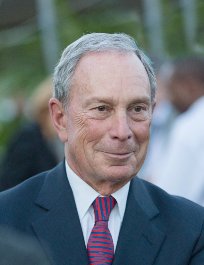Will Five Candidates Win 10 Percent in a 2020 Primary?
Such a feat has occurred only three times since 1912

In fact, the possibility looms of seeing at least one upcoming primary in which five candidates receive double-digit support – something that has happened in only a handful of primaries over the past century.
In New Hampshire’s 2016 Republican primary, Donald Trump (35.2 percent), John Kasich (15.7 percent), Ted Cruz (11.6 percent), Jeb Bush (11.0 percent), and Marco Rubio (10.5 percent) all reached the 10 percent mark.
All five candidates remained in the race through South Carolina.
It could happen again in New Hampshire in 2020, where Bernie Sanders, Joe Biden, Elizabeth Warren, and Pete Buttigieg are each averaging double-digit backing, with Amy Klobuchar also eclipsing that mark in multiple surveys conducted over the last few weeks.
Add Tom Steyer’s name to the list in South Carolina where the billionaire has polled at 18 and 15 percent in the two public polls released this year.
And while it is perhaps unlikely that each of those aforementioned candidates will still be in the race by Super Tuesday, Bloomberg is almost assured to receive double-digit support in many of the 14 states holding primaries that day.
But the 2016 New Hampshire Republican primary results are quite unusual in the history of presidential primaries.
In only two other instances have five candidates registered the support of 10 percent of primary voters.
In the last (and essentially non-contested) primary of the 1992 cycle held on June 9th in North Dakota, Ross Perot led the way winning 29.0 percent (via write-ins). Controversial candidate Lyndon La Rouche received 21.4 percent with relative unknowns Charles Woods of Nevada (20.3 percent) and Tom Shiekman of Florida (14.8 percent), besting eventual nominee Bill Clinton who received 14.5 percent via write-ins.
Four years later, Vermont Republicans gave at least 10 percent support to five candidates with eventual nominee Bob Dole leading the way at 40.3 percent and Pat Buchanan (16.7 percent), Steve Forbes (15.6 percent), Dick Lugar (13.6 percent), and Lamar Alexander (10.6 percent) well behind.
[Note: This review does not include state caucus / convention voting – e.g. during the 2012 Iowa caucuses, five Republicans won at least 10 percent of the vote].
Follow Smart Politics on Twitter.
